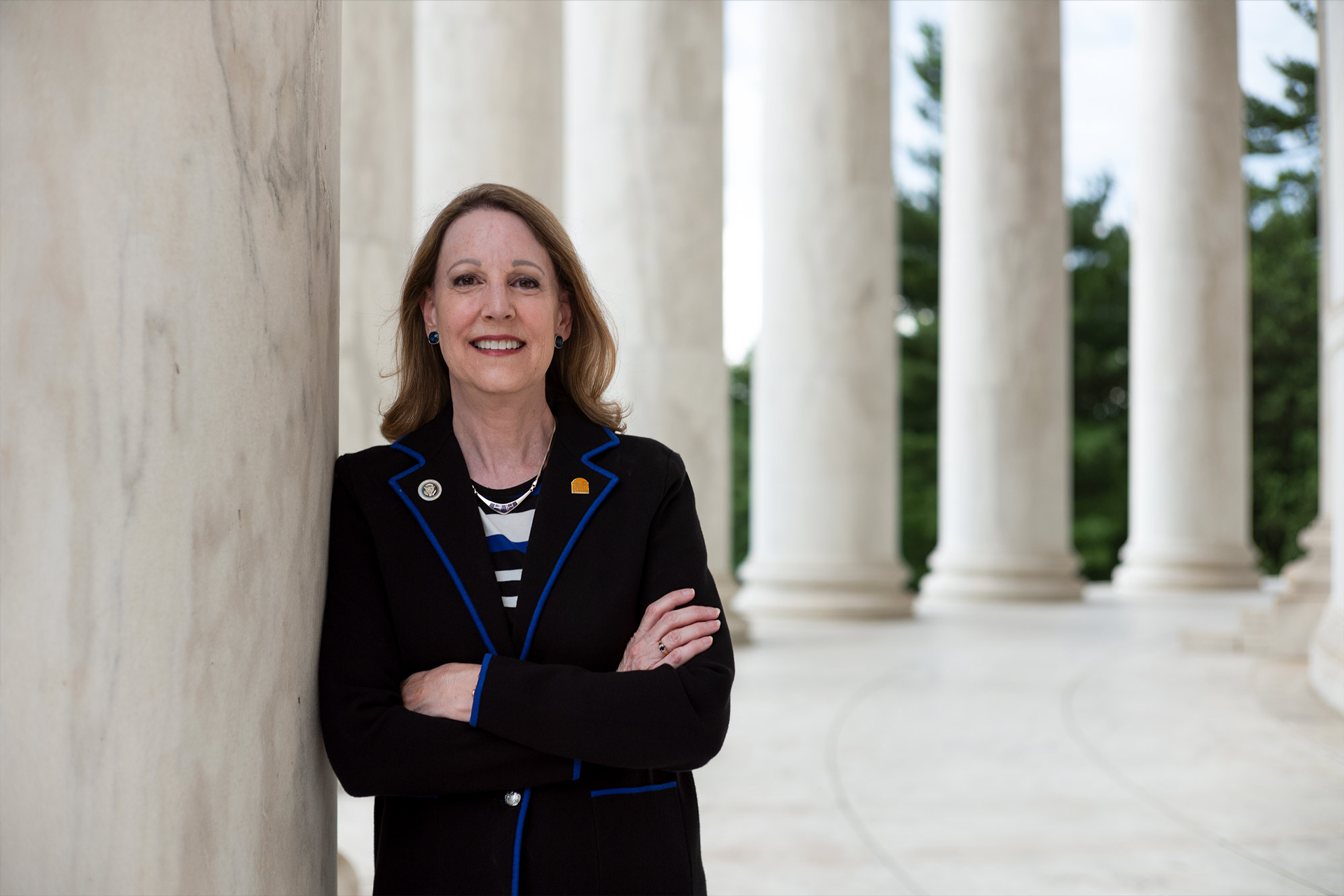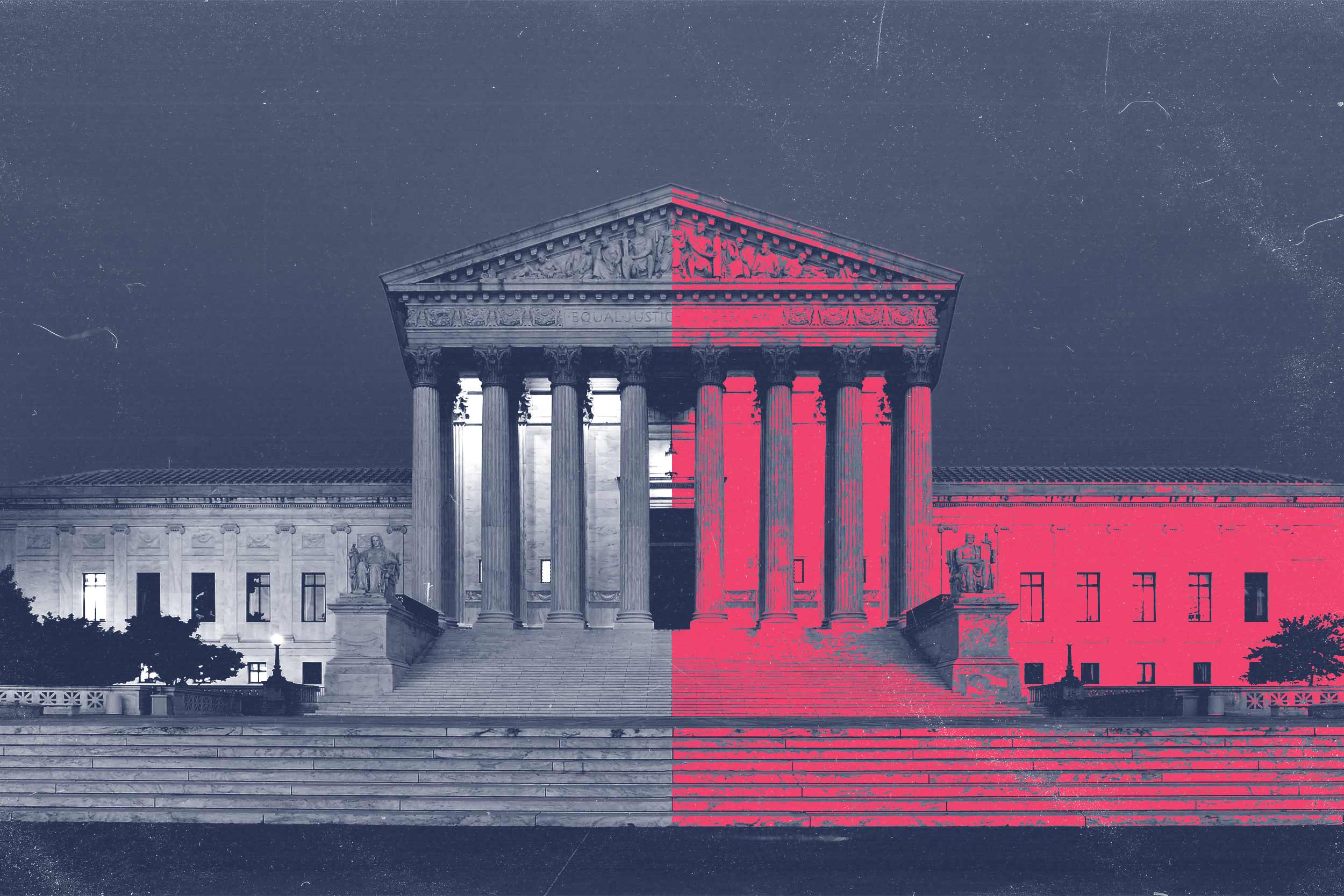The U.S. Supreme Court agreed late last week to hear a Colorado court case that could decide whether former President Donald Trump is eligible to be on that state’s Republican presidential primary ballot.
The Colorado Supreme Court decided in December that Trump could not be on the ballot because of his actions in the Jan. 6, 2020, Capitol insurrection. Also in December, Maine’s Secretary of State made a similar decision, which is being appealed in that state’s court system.
The nation’s highest court is scheduled to hear the Colorado case Feb. 8 with a decision to follow. A quick decision would allow time for Trump to be included on the Colorado ballot, should the ruling go in his favor.
Other cases involving Trump may soon go to the Supreme Court. One is a Georgia case alleging Trump and his associates tried to influence vote counts; another is a Florida case involving highly sensitive national security documents Trump took with him when he left the White House.
Among legal questions the high court will likely need to address are Trump’s claims he is immune from criminal charges, both while serving as president and as a former president.
Recent U.S. Supreme Court decisions have taken a strong turn toward the conservative, including the 2022 decision overturning Roe v. Wade, which legalized abortion. Among the six justices seen as conservative, three are Trump appointees – Justices Neil Gorsuch, Brett Kavanaugh and Amy Coney Barrett.
Packed with so many conservatives, it’s easy to wonder if the court will hold a political line in rendering its decisions. UVA Today asked Barbara Perry, the Gerald L. Baliles Professor and co-chair of the Miller Center’s Presidential Oral History Program, for her insight. Perry is also a former judicial fellow at the U.S. Supreme Court and served as a researcher for the late Chief Justice William Rehnquist.
Q. It’s easy to assume that, in a divided political landscape, the Supreme Court justices will vote in support of the political ideals and the president who appointed them. How safe is that assumption?
A. More likely than not, but never a certainty. Political scientists have determined that justices vote along the same ideological lines as their appointing presidents about 80% of the time. That means presidents and their supporters are disappointed about one-fifth of the time, like President Dwight D. Eisenhower was over the left turn of his nominees Chief Justice Earl Warren and Justice William Brennan. Ike labeled them the two biggest mistakes of his eight-year presidency.
President Richard Nixon’s appointee, Justice Harry Blackmun, authored the Roe v. Wade decision. Ford nominee Justice John Paul Stevens joined the court’s liberal wing, although he maintained, instead, that “the center shifted.”
But it’s important to remember that most of the 60 to 70 Supreme Court cases decided with full opinions annually are not highly ideological, unlike the hot-button political issues Americans care most about, such as abortion, voting, religion, affirmative action, race, gender, marriage, expression and criminal rights.
Q. Would you name some historic court cases in which justices voted against the political wishes of the president who put them in office? How did the presidents respond to the decisions?
A. In U.S. v. Nixon – regarding the Watergate tapes case – Associate Justice William Rehnquist recused himself for having served in President Richard Nixon’s Justice Department. The other three Nixon appointees – Chief Justice Warren Burger and Justices Harry Blackmun and Lewis Powell Jr. – sided with the unanimous opinion that Nixon’s claim of executive privilege failed to protect his secretly recorded conversations from subpoenas for use in the criminal trials of his former advisors.

Nixon still fought over documents he wanted to destroy, prompting Congress to pass the Presidential Records Act. It’s under that law that a federal grand jury has indicted Trump for absconding with official documents, including top secret ones, to his Florida estate.
President Theodore Roosevelt’s appointee, the famed Justice Oliver Wendell Holmes Jr., deviated from Roosevelt’s progressive desire to dismantle monopolies. Hearing that Holmes had dissented from the Supreme Court’s 1904 decision to break up a railroad trust, Roosevelt declared, “Out of a banana I could carve a firmer backbone!”
In 1803’s Marbury v. Madison decision, Chief Justice John Marshall led the Supreme Court in blocking former President John Adams’ last-minute nomination of William Marbury to be a justice of the peace for Washington, D.C. Although Marshall countered the very president who named him to the court’s center chair, he also established the power of judicial review for the nation’s highest tribunal. That led the new president, Thomas Jefferson, to refer to Marshall as “that gloomy malignity.”
Q. Have any of Trump’s nominees to the court voted against the former president in the recent past?
A. Yes, in Trump v. Vance, in mid-2020, Trump’s first two nominees, Neil Gorsuch and Brett Kavanaugh, voted with a seven-justice majority that rejected his claim of absolute immunity from a state grand jury subpoena for his pre-presidential financial records. Even as an ex-president, Trump maintains that he is immune from federal prosecution.
Q. With SCOTUS seemingly stacked in favor of social conservatives, some wonder if the appointment process of justices is broken. Does the system still work?
A. As the late UVA politics professor Henry Abraham used to remark, all presidents attempt to pack the court: “You would, and I would.” But a frustrated President Harry Truman angrily determined in 1952 that “packing the Supreme Court simply can’t be done. I’ve tried it and it won’t work.” Half of his four nominees agreed with the majority that he did not have the authority to seize striking steel mills during the Korean War.
Trump’s three nominees, combined with Justices Clarence Thomas and Samuel Alito, and sometimes with Chief Justice John Roberts, have solidified a reliable majority on social issues that conservatives had striven to ensconce on the high court since the liberal Warren Court of the 1950s.
FDR packed the Court with New Deal supporters after he lost more than a dozen cases involving economic regulation in his first term during the Great Depression. Nixon and Reagan both campaigned on packing the court with conservatives in 1968 and 1980, respectively, but they were disappointed by Blackmun, Burger, Powell (Nixon) and O’Connor and Kennedy (Reagan).
The part of the nomination process that should cause concern is the increasing role of interest groups, think tanks and social media. Consider, for example, that Trump used verbatim the Federalist Society’s and the Heritage Foundation’s list of nominees.
Then-Senate Majority Leader Mitch McConnell delayed and ultimately refused to give Obama’s nominee, Merrick Garland, a hearing and then rushed Trump nominee Amy Coney Barrett through confirmation just six weeks prior to the 2020 election.
Even Sen. Edward Kennedy, who launched this new era of Senate opposition to nominees with his floor speech against Robert Bork, supported allowing Reagan’s nomination for a “swing seat” to come before the Judiciary Committee, where Democrats gave him just enough rope to hang himself.
These blatantly partisan acts have diluted the founders’ constitutional structures, such as life tenure, to protect the federal judiciary from the muck and mire of electoral politics. Homicidal threats against judges and other officeholders are even more alarming.
Media Contacts
Assistant Editor, UVA Today Office of University Communications
bkm4s@virginia.edu 434-924-3778






